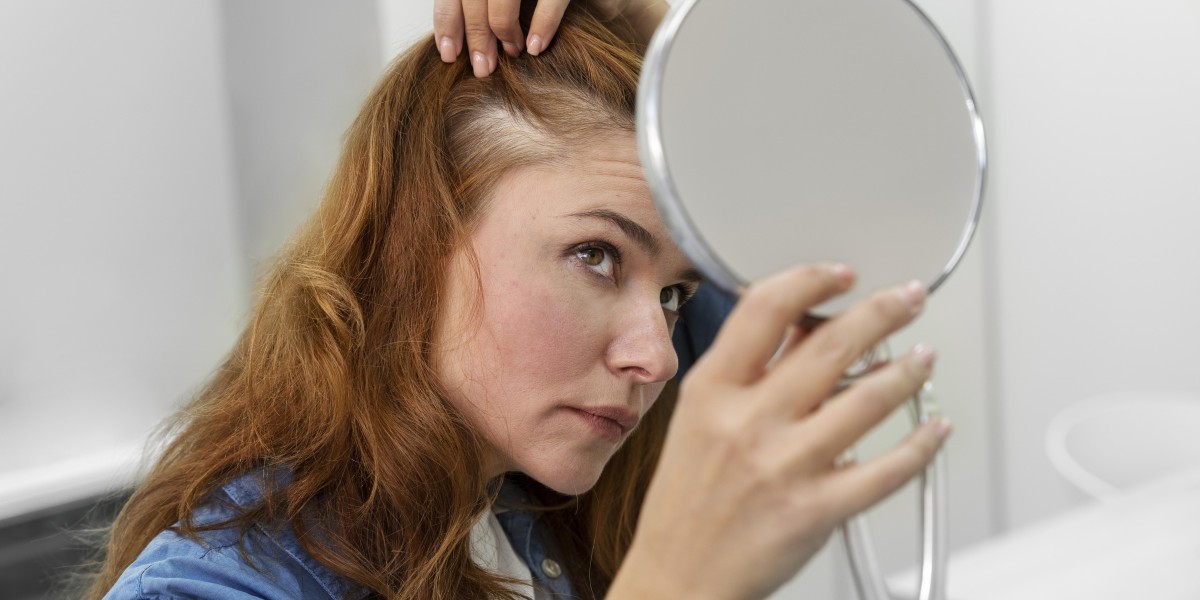Female pattern hair loss (FPHL), or androgenetic alopecia, is a prevalent condition that impacts the lives of millions of women worldwide. This progressive condition manifests as a thinning of hair primarily on the top and crown of the scalp. If you’re experiencing this condition, it’s crucial to understand the treatment options available to you. Consulting with a top dermatologist in Bangalore can provide you with a tailored approach to managing this condition effectively.
Identifying Female Pattern Hair Loss
FPHL typically presents as a diffuse thinning across the scalp, which is distinct from the hair loss patterns commonly seen in men. This condition can be distressing, impacting a woman’s self-esteem and quality of life. Accurate diagnosis is essential for effective management and involves a thorough medical history review, a clinical examination, and, in some cases, scalp biopsies. Dermatologists will also consider ruling out other potential causes of hair loss, such as nutritional deficiencies, hormonal imbalances, or autoimmune conditions, to ensure a comprehensive understanding of each patient’s condition.
Medical Treatments
Topical Minoxidil: The only FDA-approved medication for FPHL, topical minoxidil is applied directly to the scalp. It has been shown to slow down hair loss and, in some cases, stimulate new hair growth. It’s important to note that consistent, long-term use is necessary to maintain results, and it may take several months to notice significant changes.
Oral Medications: Finasteride and spironolactone are commonly prescribed to manage FPHL. These medications work by blocking the hormones that contribute to hair loss. However, they are not suitable for everyone, and their use requires close monitoring by a healthcare provider to manage potential side effects and interactions.
Low-Level Laser Therapy (LLLT): This non-invasive treatment option uses laser devices to stimulate hair follicles, thereby increasing hair density. LLLT devices, such as laser helmets and combs, are available for at-home use under the guidance of a professional. These devices emit photons into the scalp tissue to encourage hair growth by enhancing blood flow and cellular activity in the hair follicles.
Procedural Interventions
Platelet-Rich Plasma (PRP) Therapy: PRP therapy involves drawing a small amount of blood from the patient, processing it to concentrate the platelets, and then injecting this concentration back into the scalp. The growth factors in PRP can stimulate hair follicles, encouraging new growth and enhancing hair density. This procedure is gaining popularity due to its natural approach and the minimal risk of adverse reactions.
Hair Transplant Surgery: For women with significant hair loss who have not responded well to other treatments, hair transplant surgery can provide a more permanent solution. This surgical procedure involves moving hair follicles from one part of the scalp (usually the back or sides of the head, where hair growth is usually denser) to the thinning areas. This procedure can result in a more natural look and is usually recommended when other treatments have not yielded the desired results.
Lifestyle and Supportive Care
In addition to medical and procedural treatments, certain lifestyle modifications can aid in managing FPHL. Stress management techniques, such as mindfulness, meditation, and yoga, can be beneficial as stress is known to exacerbate hair loss. Nutritional support is also vital; a diet rich in vitamins, minerals, and proteins can provide the building blocks for healthy hair growth. Gentle hair care practices, such as using mild shampoos and conditioners and avoiding harsh chemical treatments, can also help maintain scalp health and hair integrity.
Psychological support and counseling are crucial for coping with the emotional impact of hair loss. Many women experience a significant psychological burden due to hair loss, including anxiety, depression, and lowered self-esteem. Support groups, therapy, and counseling can provide a safe space for women to share their experiences and learn coping strategies.
Consulting with a Dermatologist in Bangalore
Bangalore is home to some of the leading dermatologists who specialize in treating FPHL. These experts can provide a comprehensive evaluation and develop a personalized treatment plan based on the individual’s specific needs and lifestyle. A consultation with a dermatologist in Bangalore can help you navigate the complex landscape of FPHL treatments and choose the most appropriate options for your situation.
Conclusion
Female pattern hair loss can be a challenging condition to face, but with the right support and treatment, it’s possible to manage and even reverse its effects. The key to success lies in early detection, accurate diagnosis, and a tailored treatment approach guided by a qualified dermatologist. If you’re experiencing hair loss, don’t hesitate to seek professional advice. A leading dermatologist in Bangalore can help you regain control over your hair health, offering both medical and emotional support throughout your journey to healthier, fuller hair.



